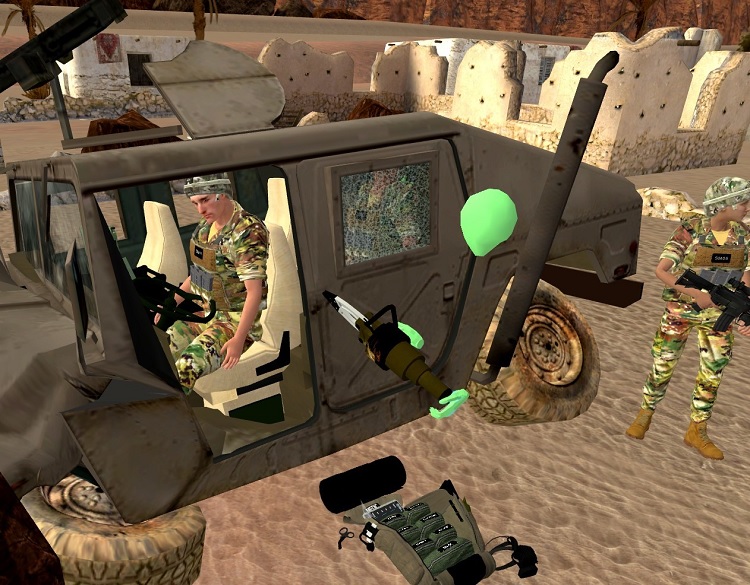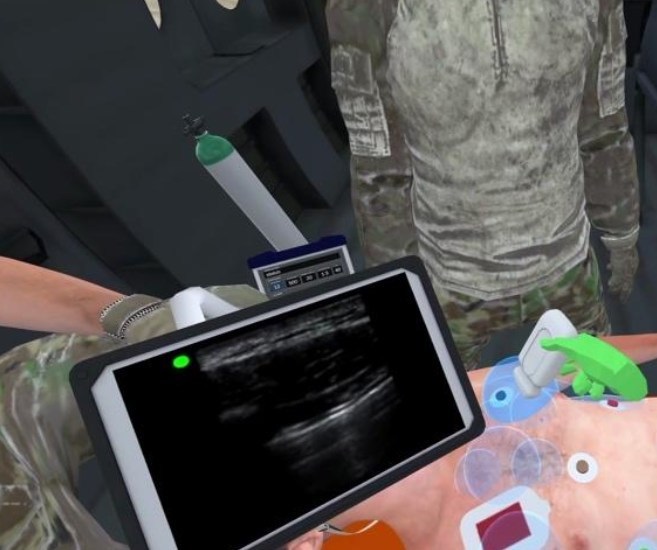
In Virtual Reality News
December 8, 2022 – SimX, a provider of virtual reality (VR) medical simulation solutions, has recently announced a new USD $225,000 effort with the US Air Force (USAF) to explore emerging areas for the use of advanced VR medical simulation training (MST).
The effort seeks to innovate around the use of VR MST in three critical training needs for Air Force Special Operations Command Wing (AFSOC): urban and technical search and rescue; casualty evacuation (CASEVAC); and medical care during active combat (Care Under Fire).
The effort, housed within SimX’s Virtual Advancement of Learning for Operational Readiness (VALOR) program, aims to enhance the accessibility of training for these critical Special Warfare missions. According to SimX, during an initial three-month exploration phase, the company will work with AFSOC subject matter experts from the 24th Special Operations Wing to conduct a detailed feasibility study of the use of VR for critical training needs and will produce curricular guidelines aimed at existing training capability gaps.
“These efforts will allow us to target the training of complex tactical decision-making and high consequence, low occurrence skills that will be critical in the future operating environment,” said Col John R. Dorsch DO, USAF (ret.), senior military advisor at SimX and former Medical Director for USAF Pararescue. “VALOR’s expansion will ensure accelerated learning and expertise development across the full spectrum of operations.”

Potential training requirements include high angle recovery, confined space rescue, breaching and extrication, patient packaging and transload, and casualty movement under fire. The overall objective of the collaboration is to identify key areas of need for future development in VR MST. The project aims to investigate feasibility for both civilian and military requirements, as the company stated the three focus areas are applicable to civilian emergency agencies as well.
“VR advancement in these training areas will enable more efficient and cost-effective simulation for rare but critical events. This training could be particularly impactful for resource limited civilian agencies, which could benefit tremendously from access to low-cost VR simulation,” said Karthik V Sarma PhD, principal investigator of the VALOR program and Chief Technology Officer of SimX.
Funding for the collaboration was provided by the Department of the Air Force (DAF) under the AFWERX Small Business Innovation Research (SBIR) program.
For more information on SimX and its virtual reality medical simulation platform, visit the company’s website.
Image credit: SimX
About the author
Sam is the Founder and Managing Editor of Auganix. With a background in research and report writing, he has been covering XR industry news for the past seven years.
